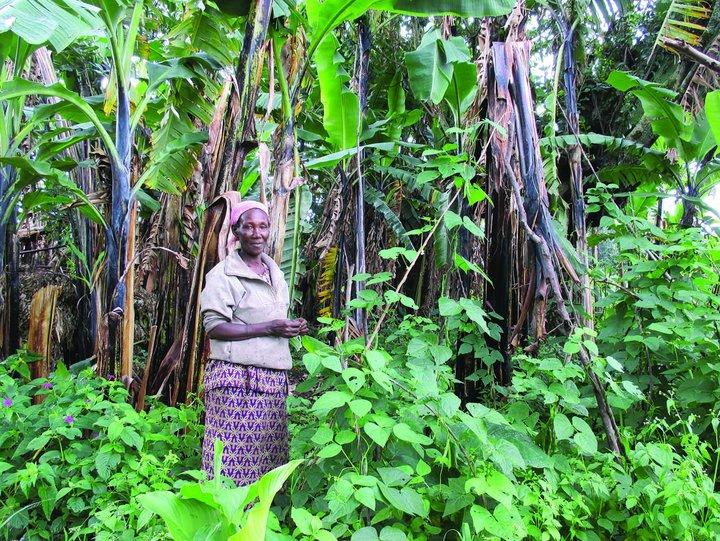CIALCA: Planting for future growth in the humid tropics

The Consortium for Improving Agriculture-based Livelihoods in Central Africa merged its activities with the CGIAR Research Program on Integrated Systems for the Humid Tropics in 2013. Read more in this 2013 Annual Report story.
After seven years of delivering agricultural technologies to family farmers, the Consortium for Improving Agriculture-based Livelihoods in Central Africa (CIALCA) merged its activities with the CGIAR Research Program on Integrated Systems for the Humid Tropics (Humidtropics) in 2013. The CIALCA partnership developed over 30 technical and management innovations for farmers in Burundi, Rwanda and the Democratic Republic of the Congo.
CIALCA was an inclusive research-for-development partnership spearheaded by Bioversity International, the International Center for Tropical Agriculture (CIAT) and the International Institute of Tropical Agriculture (IITA). Upstream scientific input was provided by Universities UCL and KU Leuven in Belgium, and there was strong collaboration with national research and development institutes. Bioversity International contributed cutting-edge research on banana diseases (banana xanthomonas wilt, banana bunchy top disease and fusarium wilt), banana agronomy, nutrition and Musa germplasm characterization in the Congo Basin. Project innovations were packaged and scaled out to development partners through the Bioversity International-led Knowledge Resource Centre based in Bujumbura, Burundi.
CIALCA’s research investments in agricultural system productivity and resilience have paid off: impact assessments have found the programme helped increase household incomes and protein intake, improved farm productivity and created demand for new agricultural technologies. CIALCA also strengthened national scientific capacity, engaging and supporting 20 PhD and more than 30 MSc students in CIALCA research. Several CIALCA alumni now hold senior public positions in their respective countries, providing new vision and leadership in agricultural research management, and contributing to the development of home-grown solutions to national agricultural challenges.
A 2011 study of the programme’s organizational model found it to be highly organic and adaptable to local contexts. Importantly, partners felt entrusted with ownership and treated as equals, increasing their enthusiasm for engaging in joint innovation and learning.
CIALCA has shown that agricultural research can provide insights and innovations that guide investments in a more food-secure future. In the years to come, Humidtropics will build on CIALCA’s achievements to further reduce household vulnerability to climatic shocks, high food prices, crop pests and diseases, and declining soil fertility.
Read more Annual Report 2013 stories.
